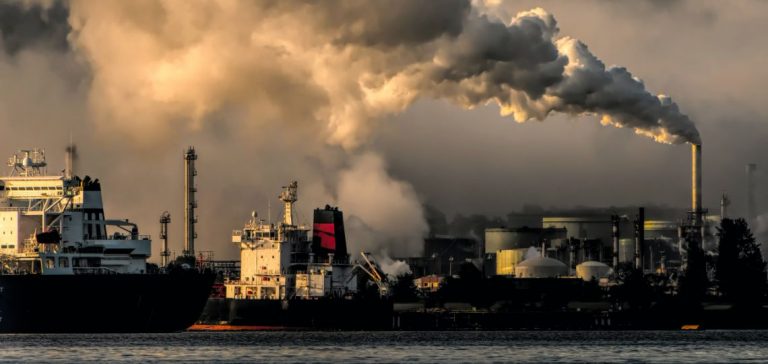The recent report by DNV highlights a major milestone in the fight against climate change: global energy-related CO2 emissions are expected to reach a peak this year. This development is primarily attributed to the ongoing reduction in costs of renewable energy sources, such as solar and batteries, prompting many countries to decrease their reliance on coal and oil. However, despite this peak in emissions, current efforts are insufficient to achieve the climate goals outlined in the Paris Agreement.
The stabilization of CO2 emissions occurs as the world faces an economic recovery and increased energy demand, particularly in developing countries. In 2023, emissions reached 33 gigatons, marking a plateau compared to previous years. This trend is largely the result of the energy transition led by advanced countries, which are prioritizing natural gas and renewable energies over coal.
Renewable energies, especially solar, have experienced exponential growth. In 2023, new solar installations surged by 80%, reaching 400 gigawatts (GW) worldwide. This rapid expansion is facilitated by the declining production costs of solar energy, making it more economical than coal in many regions. Additionally, battery prices have fallen by 14%, making energy storage more affordable and enabling more efficient use of solar power, even during periods without sunlight.
China, the world’s largest CO2 emitter, plays a key role in this dynamic. It accounted for 58% of new solar installations and 63% of electric vehicle sales last year. This shift towards cleaner energy sources, while reducing its dependence on coal, significantly impacts global trends. China’s energy transition contributes to the stabilization of global emissions, although the country remains the largest contributor to overall emissions.
Despite these advancements, the DNV report warns that merely stabilizing emissions will not suffice to limit global warming to the 1.5°C target set by the Paris Agreement. Projections indicate that humanity is heading towards a scenario of +2.2°C by the end of the century. This projection is supported by estimates from companies like Shell, which predict global emissions will continue to rise until 2030 before slightly declining, reaching 10% above 2010 levels. This lag complicates the necessary decarbonization trajectory to achieve climate objectives.
The slow pace of global decarbonization remains a significant challenge. To effectively limit global warming, it is essential to accelerate emission reductions after the current peak. This requires unprecedented mobilization of storage technologies, robust incentive policies, and massive funding for developing countries. Investments in clean energy infrastructure must be intensified to ensure a rapid and sustainable transition.
Furthermore, future prospects largely depend on nations’ ability to maintain the momentum of the energy transition. BP and Shell, for example, also anticipate a peak in emissions in the middle of this decade. The rate of decline post-peak will determine the success of global efforts to combat climate change. Enhanced international coordination and strong political commitments are essential to ensure a significant reduction in emissions after the current peak.
The DNV report sends a strong signal: while the energy transition is progressing, more ambitious actions are necessary to avoid surpassing critical warming thresholds. Stabilizing emissions is a step in the right direction, but it must be followed by more rigorous measures to ensure a viable climatic future.






















